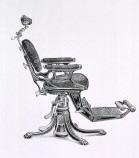| Pages in topic: < [1 2] | Poll: Do you think professional translators require a specific translation qualification to be successful? Thread poster: ProZ.com Staff
|
|---|
Mario Chavez (X) 
Local time: 02:40
English to Spanish
+ ...
| I'm standing up... | Mar 23, 2015 |
Chris S wrote: Michael Harris wrote:
What is the point of a university degree in translating and you have no idea about the subject? Everyone will need some kind of training to become a decent translator. And most translations require no specialist knowledge anyway. But if an engineer can learn how to write, a linguist can learn about engineering.
,,,and applauding your words.
| | | | Yaotl Altan 
Mexico
Local time: 00:40
Member (2006)
English to Spanish
+ ...
I haven't needed a "formal" qualification to achieve good deals in the translation field.
| | | | | Post removed: This post was hidden by a moderator or staff member because it was not in line with site rule | Diana Obermeyer 
United Kingdom
Local time: 07:40
Member (2013)
German to English
+ ...
| That sums it up... | Mar 23, 2015 |
Michael Wetzel wrote:
In my experience, good (and good-paying) direct clients are generally most concerned about translators' knowledge of (and credentials in) the relevant field. Most of them are probably only vaguely aware that it is possible (and potentially productive) to study the practice of translation itself. If you work for source-language clients they are also likely to be more concerned about your grasp of their language than that of your target language.
That pretty much sums up my experience. I mainly work for direct clients and most of them are SMEs. They want to know that I understand their business and they want one translator for both directions. Pretty much the opposite of what agencies want.
However, I do believe that there is a place for formal study, both for school leavers considering their career choices and for CPD. For the first category, a translation degree will be helpful. I tend to think that I am only "getting away with" not having a translation qualification on account of my business degree and a bit of pot luck with the acquisition of reliable repeat customers when I first started out.
I don't know the ins and outs of all the qualifications out there, but in Germany, one can sit the "Übersetzerprüfung" without formal study if relevant experience can be proven; in the UK the same applies to the ITI Qualified Membership Exam for Translators; and the CIoL simply allows anyone to attempt the DipTrans exams. These qualifications are recognised and valued. I will go down that route eventually.
| | |
|
|
|
texjax DDS PhD 
Local time: 02:40
Member (2006)
English to Italian
+ ...
Michael Wetzel wrote:
To the extent that getting a translation degree or other qualification prevents translators from getting a degree in a subject-matter field or gathering extensive professional experience in a subject-matter field, I would say it might actually hinder their financial success.
In my experience, good (and good-paying) direct clients are generally most concerned about translators' knowledge of (and credentials in) the relevant field. Most of them are probably only vaguely aware that it is possible (and potentially productive) to study the practice of translation itself.
This is a very interesting perspective, which I've never thought about, to be honest.
Definitely food for thoughts...
Best regards
[Edited at 2015-03-24 16:06 GMT]
| | | | Thayenga 
Germany
Local time: 08:40
Member (2009)
English to German
+ ...
I had been translating Civil Engineering related texts for a good 10 years before I got the "proof of my translation qualification" in economics. Did I need any qualifications when I started as an in-house translator? Yes, 1. speak both languages fluently on a day-to-day basis and not just studying them, 2. have a good "feeling" for languages, especially for the syntax and grammar of texts, and 3. the ability to write clearly and fluently. In short, I was paid for my translation work for 10 year... See more I had been translating Civil Engineering related texts for a good 10 years before I got the "proof of my translation qualification" in economics. Did I need any qualifications when I started as an in-house translator? Yes, 1. speak both languages fluently on a day-to-day basis and not just studying them, 2. have a good "feeling" for languages, especially for the syntax and grammar of texts, and 3. the ability to write clearly and fluently. In short, I was paid for my translation work for 10 years without any degree in translations. I'd call that being quite successful. ▲ Collapse
| | | | DianeGM 
Local time: 09:40
Member (2006)
Dutch to English
+ ...
but it is probably not a bad thing in itself.
I think actual ability/talent is what counts and the more knowledge one has in and out of translation the more chances one has of being a successful translator
| | | | | Engineering takes much more effort | Mar 24, 2015 |
Chris S wrote:
But if an engineer can learn how to write, a linguist can learn about engineering.
Sure, by first taking an Engineering degree from a college.
The base knowledge to learn is much bigger than learning a language to be able to translate from.
It takes a couple of years to get all Maths, Physics and Chemistry before you can just begin understanding what Engineering means and how many different models (that make your knowledge deeper and deeper) and fields you have to master during the next 3 years before you can do what an Engineer does or must be able to do in his/her everyday work.
This can be said only by people who don't even know what Engineering means.
By the way: an Engineer is supposed to be able to perfectly write his/her technical reports just like his/her local standards and reguations require.
Please, stop comparing the training needed to start working as a translator to that needed to start working as an engineer. Times and amounts cannot be compared. I swear!
[Edited at 2015-03-24 16:32 GMT]
| | |
|
|
|
| I may have misunderstood | Mar 25, 2015 |
I said "No" because I thought it meant certification or graduation from a translation school. If it's referring to higher education, then absolutely 'Yes'. I don't think a high school education or a couple of years of college provide a person with sufficient world knowledge to work effectively as a translator. Surprising lapses are bound to occur.
| | | | | Pages in topic: < [1 2] | To report site rules violations or get help, contact a site moderator: You can also contact site staff by submitting a support request » Poll: Do you think professional translators require a specific translation qualification to be successful? | Protemos translation business management system | Create your account in minutes, and start working! 3-month trial for agencies, and free for freelancers!
The system lets you keep client/vendor database, with contacts and rates, manage projects and assign jobs to vendors, issue invoices, track payments, store and manage project files, generate business reports on turnover profit per client/manager etc.
More info » |
| | CafeTran Espresso | You've never met a CAT tool this clever!
Translate faster & easier, using a sophisticated CAT tool built by a translator / developer.
Accept jobs from clients who use Trados, MemoQ, Wordfast & major CAT tools.
Download and start using CafeTran Espresso -- for free
Buy now! » |
|
| | | | X Sign in to your ProZ.com account... | | | | | |











